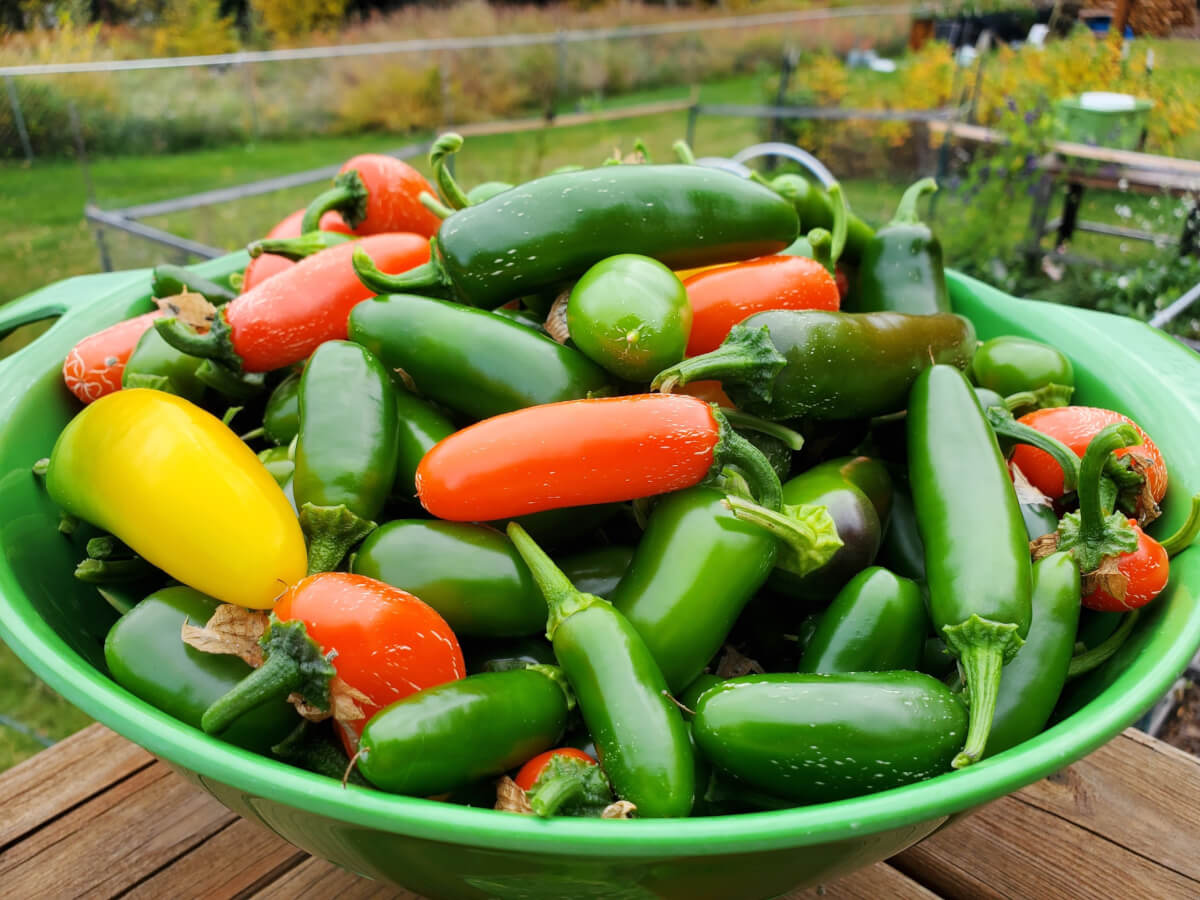Organic Vs. Synthetic Fertilizers: Which Is Best for Nurturing Healthy And Balanced Pepper Plants?
In the world of supporting healthy pepper plants, the choice between artificial and natural fertilizers stands as a critical decision with far-reaching implications. While both options aim to give crucial nutrients to sustain plant development, the nuances of their influence on the dirt, plant wellness, and the atmosphere trigger a discussion that mirrors throughout the gardening community. Understanding the unique advantages and potential risks of each fertilizer kind is essential for pepper growers seeking to maximize their returns while maintaining a lasting and eco-conscious strategy.
Benefits of Organic Plant Foods
Organic fertilizers offer an environmentally-friendly and sustainable approach to nourishing pepper plants, providing necessary nutrients without making use of artificial chemicals. These natural plant foods are stemmed from natural resources such as compost, manure, bone dish, and seaweed, advertising dirt health and wellness and biodiversity. Unlike synthetic fertilizers, natural options release nutrients slowly, guaranteeing a steady and balanced supply for pepper plants to grow.
One significant benefit of natural fertilizers is their capability to boost soil structure and water retention. By boosting soil health and wellness, natural fertilizers promote valuable microbial activity, which helps in nutrient uptake by pepper plants. In addition, organic fertilizers lower the risk of chemical run-off, securing water resources from pollution and guarding the environment.
Additionally, natural plant foods add to long-term soil fertility by advertising the development of advantageous soil organisms. These microorganisms aid damage down raw material, releasing nutrients in a kind that is easily available to pepper plants. best fertilizers for peppers. By promoting a healthy and balanced dirt ecological community, natural fertilizers support sustainable pepper cultivation methods that benefit both plants and the atmosphere
Downsides of Artificial Plant Foods
Artificial plant foods, as opposed to their natural equivalents, pose various drawbacks when utilized to nourish pepper plants, influencing both plant health and environmental sustainability. One major drawback of synthetic fertilizers is their propensity to leach nutrients from the soil rapidly. This fast leaching can result in nutrition imbalances in the soil, causing plants to deal with toxicities or deficiencies. Additionally, artificial plant foods can hurt helpful dirt organisms, such as earthworms and advantageous bacteria, interfering with the dirt environment's balance.
Additionally, the overuse of synthetic plant foods can add to water contamination. Excess plant foods not soaked up by plants can wash away right into water bodies, causing eutrophication, where algae flowers diminish oxygen degrees in the water, harming marine life. Artificial fertilizers are typically acquired from non-renewable sources, such as fossil fuels, adding to carbon discharges and ecological degradation throughout their production.
Nutrient Absorption Comparison
Effective nutrient absorption plays a crucial function in the overall wellness and growth of pepper plants. When contrasting organic and artificial plant foods in terms of nutrient absorption, natural fertilizers have the benefit of offering a much more balanced and slow-release source of nutrients (best fertilizers for peppers). Organic plant foods contain a range of macro and trace elements that are not just valuable for the plants but additionally promote healthy dirt microbial task, which assists in nutrient uptake. On the other hand, synthetic plant foods frequently give a fast release of nutrients, which can cause leaching and overflow, causing reduced nutrient absorption rates by the plants.
In addition, natural fertilizers enhance soil framework and water retention ability, permitting pepper plants to accessibility nutrients more efficiently. This better dirt top quality promotes origin growth, making it possible for far better nutrient absorption. Artificial plant foods, although originally boosting plant development as a result of their high nutrient focus, might prevent lasting nutrient absorption by derogatory dirt wellness with time.
Ecological Influence Factors To Consider

On the other hand, synthetic fertilizers, although typically more concentrated and promptly readily available to plants, can have detrimental results on the setting if not applied correctly (best fertilizers for peppers). Their production requires high power inputs, leading to greenhouse gas exhausts and contributing to environment adjustment. Additionally, the runoff of excess synthetic plant foods can pollute water sources, bring about eutrophication and damaging aquatic environments.
Ideal Fertilizer Practices for Peppers
When feeding pepper plants, maximizing nutrient uptake and minimizing ecological influence are crucial factors to consider. To accomplish this, it is important to adhere to best plant food techniques tailored to the particular demands of pepper plants. One essential method is to do a dirt examination prior to using any kind of plant foods. This examination can establish the pH degree of the dirt and recognize any nutrient shortages, guiding you in selecting the most suitable fertilizer formulation.
One more vital technique is official statement to feed pepper plants at the correct time. Typically, peppers take advantage of receiving fertilizer at planting and after that again when they start to flower. Over-fertilizing can lead to nutrition discrepancies and hurt the plants, so it is essential to follow advised application prices.
Additionally, picking a balanced plant food with an NPK ratio that fits pepper plants' requirements is essential. Ultimately, integrating organic and synthetic plant foods sensibly can aid support healthy and balanced pepper plants while lessening environmental influence.
Final Thought

Organic fertilizers supply a lasting and environmentally-friendly technique to beneficial go to this web-site pepper plants, offering necessary nutrients without the use of synthetic chemicals. Unlike artificial fertilizers, organic options release nutrients gradually, guaranteeing a balanced and constant supply for pepper plants to flourish.
Artificial plant foods, in comparison to their organic counterparts, present numerous drawbacks when made use of to nurture pepper plants, impacting both plant health and wellness and ecological sustainability. When comparing natural and synthetic plant foods in terms of nutrient absorption, natural plant foods have the benefit of providing a more balanced and slow-release source of nutrients.Additionally, organic fertilizers improve dirt framework and water retention ability, permitting pepper plants to accessibility nutrients extra successfully.